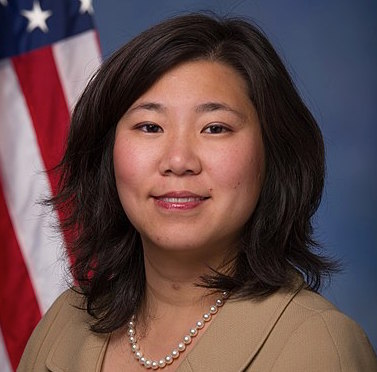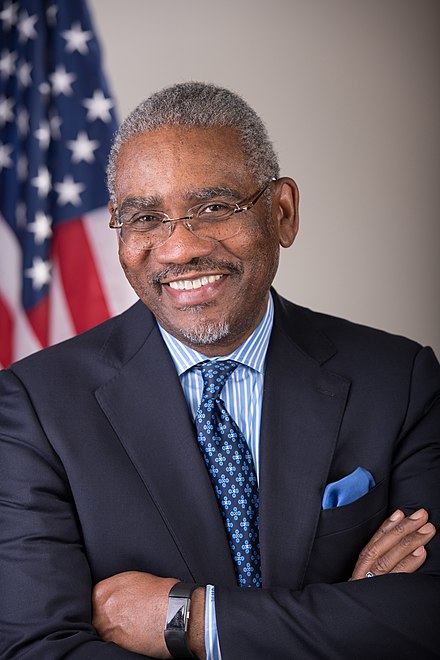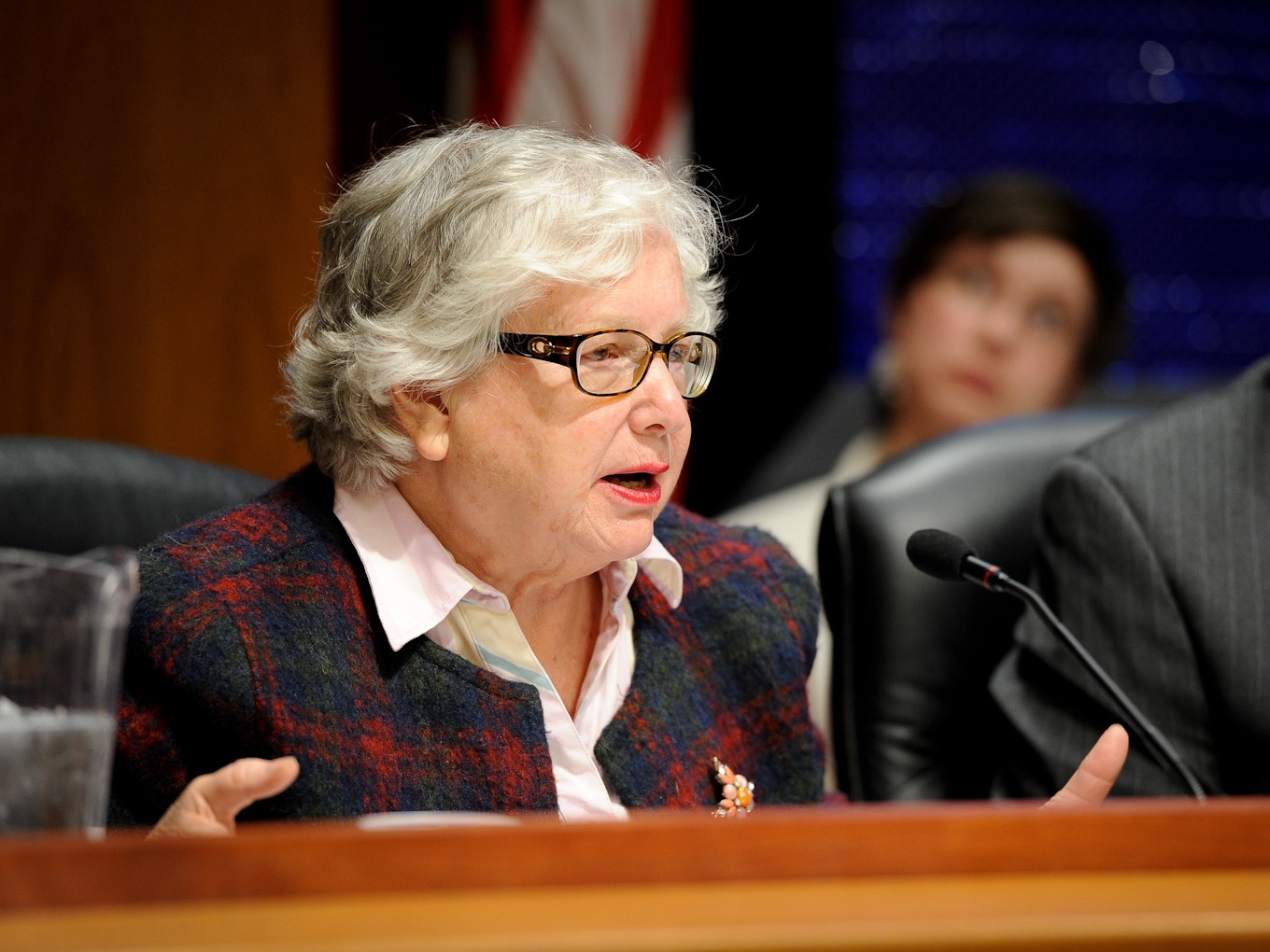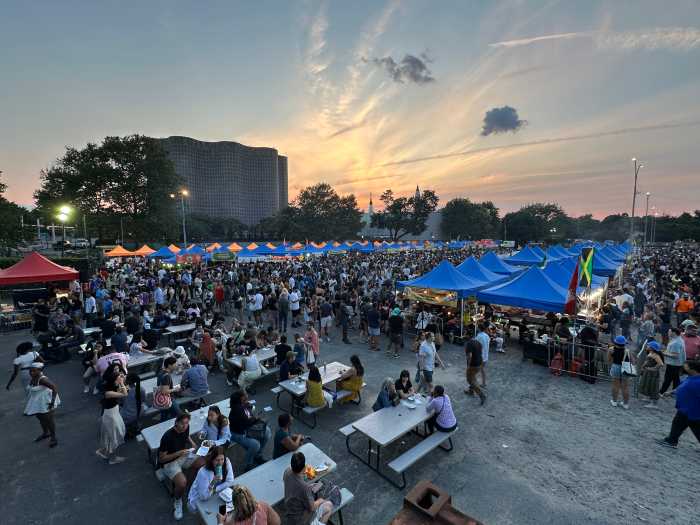Meng Releases Statement on Coronavirus Relief Package

U.S. Rep. Grace Meng (D-Queens), a member of the House Appropriations Committee, issued the following statement on Monday night after the House of Representatives passed a massive package that included $900 billion in coronavirus relief funds and $1.4 trillion to fund the government.
“It’s been nearly nine months since American families received any COVID-19 relief from the federal government. In fact, since the last time the American people received any relief, over 326,000 people have died from this deadly pandemic, and nearly 18.5 million people have been infected. I am furious and deeply disappointed that this agreement falls so shamefully short of what millions of families need in this unprecedented crisis. But with this continued surge in cases and deaths, millions still unemployed; families on the cusp of eviction; and an untold number of families struggling to put food on the table, I had to vote for this relief package. People are suffering right now, and they need immediate help.
It’s beyond infuriating that the Senate Republicans kept any relief at bay – even though House Democrats passed COVID-19 relief packages in May and October, both of which would have been more meaningful than this Band-Aid of relief. This latest round of coronavirus relief does not even begin to go far enough. The $600 stimulus checks and unemployment benefits of up to $300 are a mere drop in the bucket for the millions of families that are in desperate need of help. There is no hazard pay. Our New York State and City – which was previously the epicenter of COVID-19 – needs critical funding. Shame on the Senate Majority Leader for refusing to consider those measures, and for waiting seven months to vote on additional aid.
Our families and communities need and deserve so much more. I am glad to see, however, several provisions that I fought to include in this package: additional funding for the Paycheck Protection Program which are forgivable loans to small businesses; funding for schools and child care to help parents get back to work and keep child care providers open; rental assistance for families struggling to stay in their homes and an extension of the eviction moratorium; stimulus payments to mixed status families; funding for the MTA; unemployment coverage to contract and gig workers; reduced price internet access devices to help students connect to the internet for remote learning; and increased SNAP funding and child nutrition programs. I am also relieved this package includes the necessary funding for vaccine distribution – because we must defeat this coronavirus once and for all.
In the coming months, Congress must pass a stronger relief bill – one that truly reflects and acknowledges the hardships that millions of Americans are facing. We cannot let those who have passed – to have died in vain. The only way we will rise above this crisis is to meet it head on with a comprehensive package that puts American families and workers first.
With respect to the government spending bill, I was proud to vote for funding to improve education, affordable housing, clean air and water, resources for our veterans, and measures to address gun violence and the climate crisis. But I refused to support more than a $1 billion for constructing President Trump’s reckless and ineffective wall along the southern border, as well as nearly $700 billion in bloated funding for the Department of Defense.”
Meeks Legislation Included in COVID-19 Relief Package

U.S. Rep. Gregory Meeks (D-Jamaica, Laurelton, Rosedale, Cambria Heights, Saint Albans, Springfield Gardens, The Rockaways, JFK Airport) on Monday night thanked his colleagues and bipartisan leadership across both the House of Representatives and US Senate for including key provisions of the Jobs and Neighborhood Investment Act in the year-end COVID-19 stimulus package, which will bring much needed relief to the hardest hit communities.
Meeks introduced the legislation on July 21, 2020, with Senators Warner, Schumer, Harris and Booker with whom he worked closely to draft the bill. It provides eligible community development financial institutions (CDFIs) and Minority Depository Institutions (MDIs) with capital, liquidity, and operational capacity to expand the flow of credit into underserved, minority, and historically disadvantaged communities, helping small businesses stay afloat and expand operations, while providing affordable access to credit for lower income borrowers.
The provisions of the legislation included in the COVID19 relief package will mobilize $9 billion for the Emergency Capital Investment Program, providing critically needed affordable capital to CDFIs and MDIs, as well as $3 billion of emergency funding to the CDFI Fund, including $1.75 billion for minority lending institutions.
“I’m thankful to leadership and my colleagues in both the House and Senate for fighting for inclusion of key provisions of the Jobs and Neighborhood Investment Act in the COVID19 relief package,” said Meeks. “Throughout this pandemic, CDFIs and MDIs have been critical for supporting underserved communities. By investing in the Emergency Capital Investment Program, CDFI fund and minority lending institutions, we are making sure that relief will be made available to the un-banked and under-banked, and that communities of color have equal access to desperately needed capital and loans.”
“This negotiation will provide relief in the interim for families and businesses, including $600 in stimulus checks, an additional $300 in enhanced unemployment insurance, $25 billion in rent relief, an extended eviction moratorium, $13 billion for SNAP, funding for vaccine distribution, as well as my provisions for CDFIs and MDIs. Let’s be clear, however, that this negotiated relief bill still falls short in addressing the needs of struggling Americans. It fails to provide state and local aid, which will leave cities like New York in a dire financial situation. But this short-term COVID relief bill will bridge the gap between now and when another relief bill is negotiated under the Biden-Harris administration. Our work bringing relief to the American people is far from over, and we must redouble our efforts to bring support to, and level the playing field for marginalized communities and communities of color who have borne a disproportionate burden of the COVID19 pandemic and economic crisis.”
Stavisky Honored by Chinese American Nurses Association

State Senator Toby Ann Stavisky (D-Central Queens) received the ‘Outstanding Public Service’ award from the Chinese American Nurses Association (CANA) during their 22nd Annual Fundraising Gala, which was held virtually.
She was presented the award in person by Christine Lee, the President of CANA, at her district office prior to the gala. The senator thanked the organization for being on the front lines during the COVID-19 crisis. CANA has provided funding for the purchase of PPE for community facilities.
“We are so grateful to all healthcare workers for the work they do and the challenges they face,” Stavisky noted.
De Blasio Launches NYC Vaccine for All Campaign

Mayor Bill de Blasio on Tuesday announced the launch of the NYC Vaccine for All Campaign.
The campaign—translated into 16 languages for radio, television, newspapers, and digital media—will spread the word of a safe, effective, and free vaccine in New York City.
“Finally, hope has finally arrived in New York City,” said de Blasio. “We are launching a massive vaccination campaign at breakneck speed, guaranteeing that a vaccine will be safe, free, and easy to get for all New Yorkers.”
With a full rollout in January, the campaign will use a host of paid and earned media in over 16 languages—including TV spots, radio, subway and digital ads, social media and more—to spread public awareness around the city’s vaccination effort. A social media campaign began Tuesday, and digital campaign and subway live boards will begin next week.
This public awareness campaign will build on the work of the City’s Equity Plan, announced earlier this month. Spearheaded by the Taskforce on Racial Equity and Inclusion, the plan seeks to build trust and access to the vaccine in the 27 neighborhoods hardest hit by the virus. Through a broader outreach effort, the city will work with NYCHA residents, community partners, and faith leaders to spread accurate and trustworthy information about the vaccine and improve the distribution process.
The Department of Health and Mental Hygiene will also host virtual conversations with residents in the 27 neighborhoods and community leaders to share information on vaccine planning and provide opportunities for community members to raise questions and concerns. Community partners will have access to a training model, allowing them to serve as trusted messengers and hold webinars and community conversations on the city’s vaccine plan information and updates.
The city will use NYCHA space—including NYC Health + Hospitals clinics—to vaccinate priority populations. Finally, the Taskforce on Racial Inclusion & Equity will establish a subcommittee to focus on vaccine distribution in the city’s hardest-hit neighborhoods and engage their robust network of over 200 community organizations to ensure effective outreach. Their work will inform the city’s Vaccine Equity Principles, a set of commitments to ensure the vaccine is accessible to priority populations, with the obligation to continually solicit feedback from hardest-hit neighborhoods throughout the distribution process.








